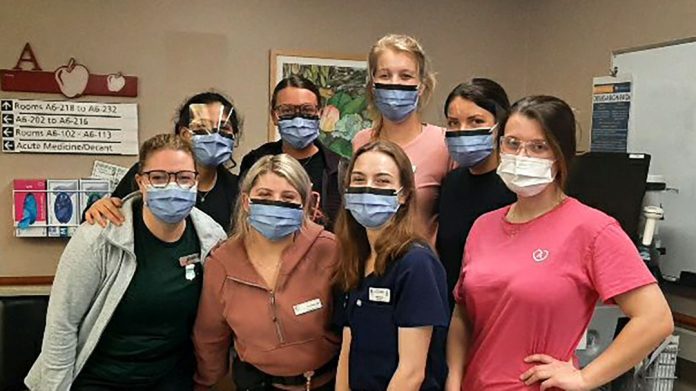COVID has been a tough ride for post-secondary students, especially those taking nursing programs.
Ashley Sheppard is a second-year practical nursing student at Durham College. She has always wanted to be a nurse.
“I’ve always wanted to do it since I was younger, and my grandma was a nurse so I’ve always wanted to be one,” she said.
She is one of many who started the program during the peak of online learning.
Sheppard is currently in her third semester, a time when most nursing students would be participating in their in-person clinical trials. While she did do some in-person, it was not as much as previous students.
Placement shifts were cut short, according to Sheppard. What should have been a weekly placement occurrence ended up being a few hours, just a few shifts spread out over the semester to learn how to work with children and elderly people.
“It’s difficult not to have that in-person experience working with patients,” she said.
Placement shifts are a key part of a nursing program.
However, they can be quite stressful, according to Emma Ohlke, a fourth-year Western University in London, Ont. She said placements are important to prepare for the job.
“The thing that’s going to make you not run around a unit like a chicken with your head cut off (later in your career) is your clinical patients, which a lot of people aren’t having in person,” she said.
Ohlke started her program pre-COVID, in 2018, so she has experience with how the program and learning approaches have changed during the pandemic, as well as the impact of online learning.
She said the loss of in-person learning and fatigue among students and professors affected her education.
“It’s a lot different to click buttons in an order that you memorized versus walking into a room and having to read a person and do a full head-to-toe assessment,” she said. “Things are going to look different when you’re in person with a real individual, with how it’s going to vary.”
She said symptoms may present differently depending on race, gender, age and a number of other factors that cannot be replicated through an online program.
The pandemic has also affected her perception of the profession.
“It made me realize how disposable healthcare workers seem to everybody,” she said. “I think it made me respect the profession a lot more.”




